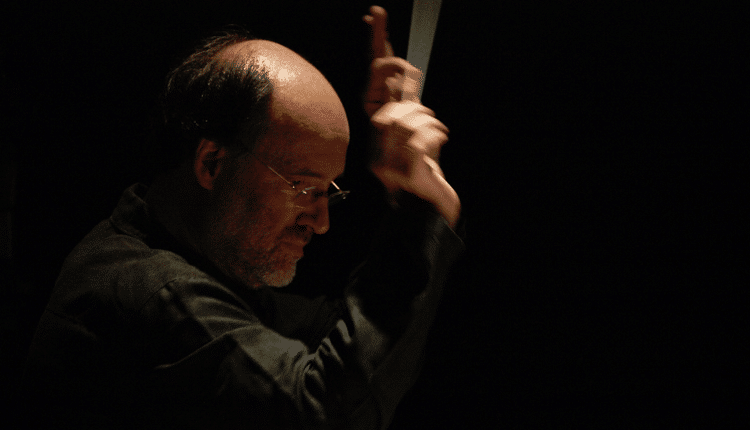
The television premiere in 1977 was one of the few Austrian musical-theatre scandals of the last few decades. For the first time in 40 years the Bregenzer Festspiele presented Franz Novotny and Otto M. Zykan’s “Staatsoperette” on a public stage. Christian Heindl spoke with the musical director Walter Kobéra about the revival.
The premiere on ORF is widely considered a perfect example of the typical Austrian sensationalist scandal. A similar commotion was provoked by Lotte Ingrisch und Gottfried von Einem’s “Jesu Hochzeit”, Peter Turrini’s “Rozznjogd”, Wolfgang Bauer’s “Gespenster” and Thomas Bernhard’s “Heldenplatz”. All of these took place in the 1970’s and 80’s. Could something like this still cause a scandal today?
Walter Kobéra: The attempt to provoke a scandal usually fails. You need the appropriate counterpart. With a catholic subject, like in “Staatsoperette”, no one would be scandalized.
Was the historical subject of the interwar period in Austria the deciding factor for you to pick up the work in order to present the audience with a situation that isn’t so different than the one today?
Walter Kobéra: For me, our school studies of the era of National Socialism triggered something in me. That’s where the Austro-fascism of the interwar period brought us. One is tempted to say that history repeats itself. In the 1930’s there was such distrust between left and right – the socialists and the Christian Social Party. The socialists didn’t have control of their own base, this could happen today . This situation is what fascinated me about this piece.
The parallels with the current domestic political polarisation in Austria are astounding. Do you see any others?
Walter Kobéra: If we look at the terms that were forced on Austria by the victors after the First World War – the ones Greece is facing from the EU are even harder. And think of the consequences of those terms for Austria!
The “Staatsoperette” – from yesterday?
In 1977 objections were raised that the audience of the day could no longer relate to the characters from that era. Isn’t that even more the case today? If one were to ask people on the street who Ignaz Seipl was, only very few would know.
Walter Kobéra: That is an important point. On the one hand, we help with the staging. On the other hand, it’s not really that important to know who the characters actually were, because they are interchangeable. It’s more about the associations that are made by the audience. It’s also not about the plot, unlike most theatre. We are presenting the transformation: Mussolini behaves like Berlusconi. It’s also about the desire for a strong leader, then as now. What comes out is that many just want to destroy. And that was the situation under Austro-fascism.
The Staatsoperette 2016
The original television production of “Staatsoperette” was just a portion of the planned piece. How far does the current version differ from that one?
Walter Kobéra: The current stage production was put together by Irene Suchy and Michael Mautner. Michael Mautner added some original compositions from Zykan and made new arrangements for 23 musicians. But it is all music from Zykan, nothing new was composed. Some was made more singable – the original used some extreme registers which have been avoided. In places it is even more severe.
The “Staatsoperette” will be premiered on the 13th of September at the Theater Akzent in Vienna. Let us now talk about the second piece in the fall program from the Neue Oper Wien: on the 25th of October you will be presenting Ernst Krenek’s “Pallas Athene weint” at the MuseumsQuartier in Vienna. That is also a political piece – the composers originally intended it to be a mirror image of the 1950’s in America. I suspect the sequence of the works wasn’t really accidental?
Walter Kobéra: I have always had “Pallas Athene weint” on my list. Maybe someone will say “Karl V.” is better – but then I would be cheeky and answer that people also perform “Lucio Silla”. In “Pallas Athene” I was captivated by the libretto, which was from Krenek himself. It’s hard to believe it is ancient, the characters are so vivid. In this respect the combination with “Staatsoperette” makes a lot of sense.
Mr. Kobéra, after what you have told me in regards to the “Staatsoperette” I think I will risk a prediction: 2016 – the scandal won’t happen.
Walter Kobéra: Perhaps someone will feel offended. But it doesn’t matter if it isn’t a scandal.
The Staatsoperette in Theater Akzent, Vienna: 13., 16., 17. & 18.09. at 19:00
LINKS:
neueoperwien.at
bregenzerfestspiele.com
akzent.at
